Nội Dung Chính
(Page 53)
II. LANGUAGE
Pronunciation
Sentence stress and rhythm
💡Remember!
• Content words (e.g. main verbs, nouns, adjectives, and adverbs) are often stressed, while grammatical words (e.g. conjunctions, pronouns, prepositions, auxiliaries, articles) are not.
• This combination of stressed and unstressed syllables produces the rhythm of spoken English.
• To sound natural and fluent, you should try to stress the correct words in your spoken sentences.
1. Listen and repeat. Pay attention to the sentence stress and rhythm. 🎧
1. The planet is getting hotter and hotter.
2. We talked about the causes of floods.
3. Burning coal is bad for our health.
4. Why is farming a big source of greenhouse gases?
2. Underline the stressed words in the sentences. Listen and check. Then practise saying the sentences with a natural rhythm.
1. The village was completely destroyed by floods.
2. Some gases are released into the air through human activities.
3. Has the earth's temperature increased in the past few years?
4. Some environmental disasters will become more frequent.
(Page 54)
Vocabulary
Global warming
1. Match the words with their meanings.
 1. coal (n) | a. that can be replaced naturally without being used up |
 2. fossil fuel (n) | b. materials that are not needed and are thrown away |
 3. release (v) | c. a substance that was formed millions of years ago from dead animals or plants |
 4. renewable (adj) | d. to let a substance flow out |
 5. waste (n) | e. a black rock that is found under the ground and is burnt to produce heat |
2. Complete the sentences using the correct forms of the words in 1.
1. Wind and sunlight are examples of _____ sources of energy.
2. The world produces more than two billion tonnes of solid _____ every year.
3. Governments need to limit the amount of greenhouse gases that is _____ into the air.
4. Her grandpa is now suffering from ill health after many years of working in the _____ industry.
5. The burning of _____ like coal and gas has led to an increase in the amount of CO, in the atmosphere.
Grammar
Present participle clauses
💡Remember!
The present participle is used to form a participle clause when the participle and the verb in the main clause have the same subject and the action is done by the same person or thing.
The present participle is a verb form ending in -ing and it has an active meaning. Present participle clauses are used to:
• explain the reason for an action.
Example: Trapping too much of the sun's heat, greenhouse gases stop it from escaping back into space.
• talk about two actions happening at the same time.
Example: Walking on the beach, they picked up litter.
1. Find and correct the mistakes in the following sentences.
1. Was waiting for the train, I read some articles about global warming.
2. Saw the forest fire, the children immediately called the police.
3. The students took part in green activities, were planting more than 100 trees.
Past participle clauses
💡Remember!
The past participle is a verb form usually ending in -ed, which normally has a passive meaning. Similar to present participles, past participles can form past participle clauses, but with a passive meaning. They are used to:
• give the reason for an action.
Example: Worried about climate change, many young people joined the environmental protests. (Many young people are worried about climate change, so they joined the environmental protests.)
• express a condition.
Example: Burnt for energy, fossil fuels release carbon dioxide into the atmosphere. (If fossil fuels are burnt for energy, they release carbon dioxide into the atmosphere.)
(Page 55)
2. Rewrite these sentences using past participle clauses.
Example: We were given enough information about the causes of global warming, so we started our report.
-> Given enough information about the causes of global warming, we started our report.
1. If farm animals are not kept cool in hot weather, they can suffer from heat stress.
-> _____, farm animals can suffer from heat stress.
2. Some farmers were worried about the consequences of deforestation, so they stopped burning trees to create farmland.
-> _____, some farmers stopped burning trees to create farmland.
3. If carbon dioxide is produced in huge amounts, it causes air pollution and climate change.
-> _____, carbon dioxide causes air pollution and climate change.
3. Work in pairs. Make sentences, using present participle and past participle clauses.
Example: Learning about the impact of global warming, we decided to save more energy.
Encouraged by our teacher, we started some environment projects.
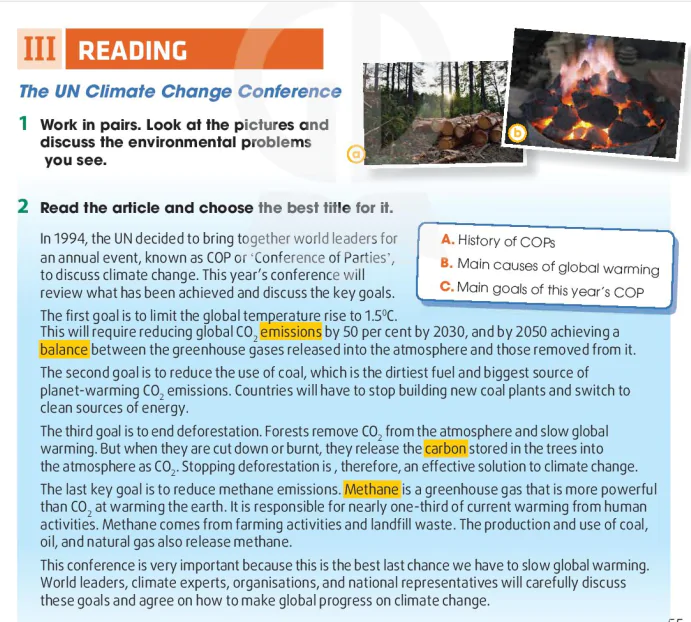
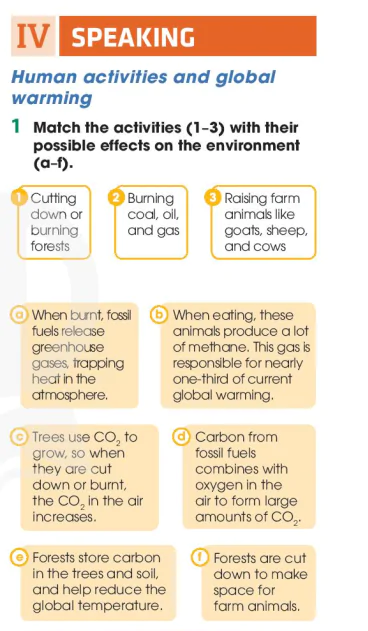
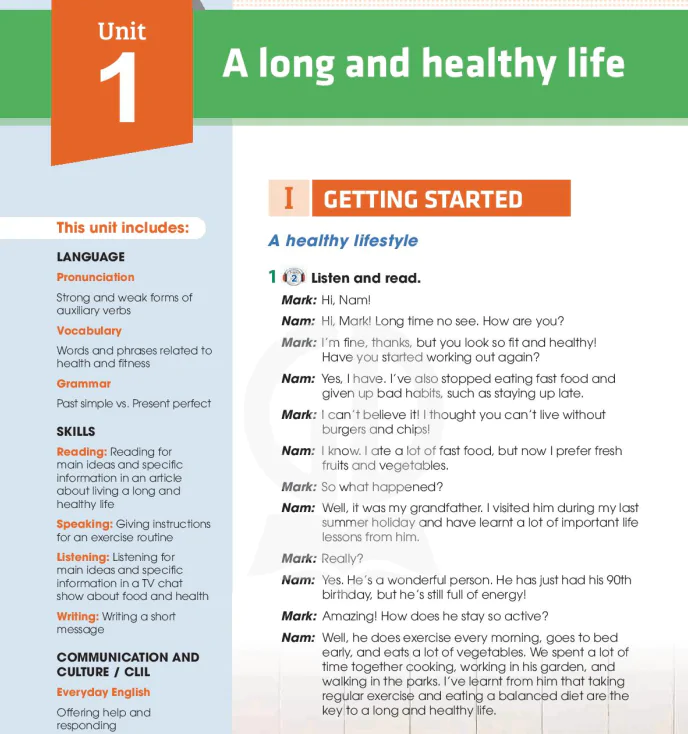
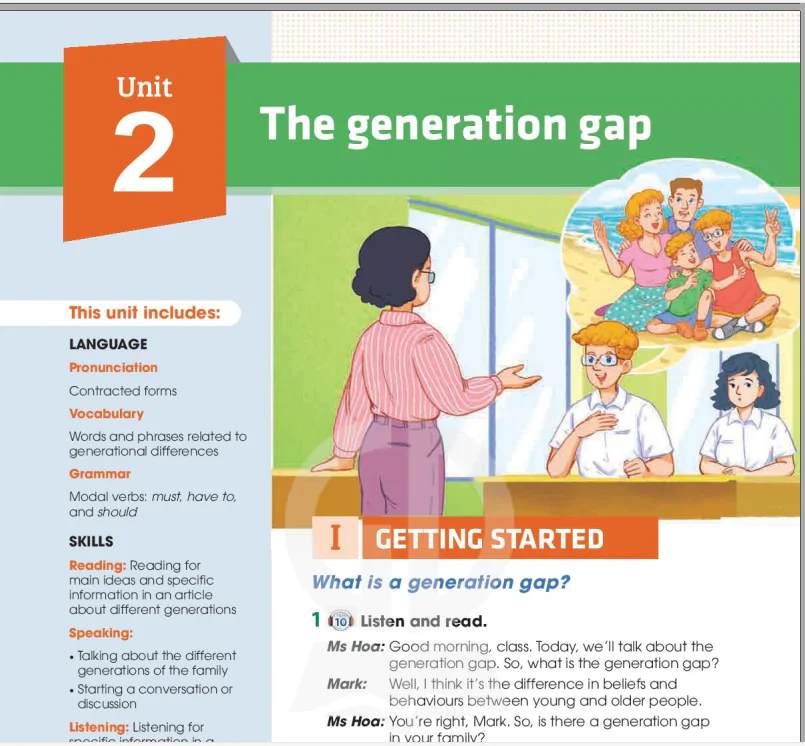
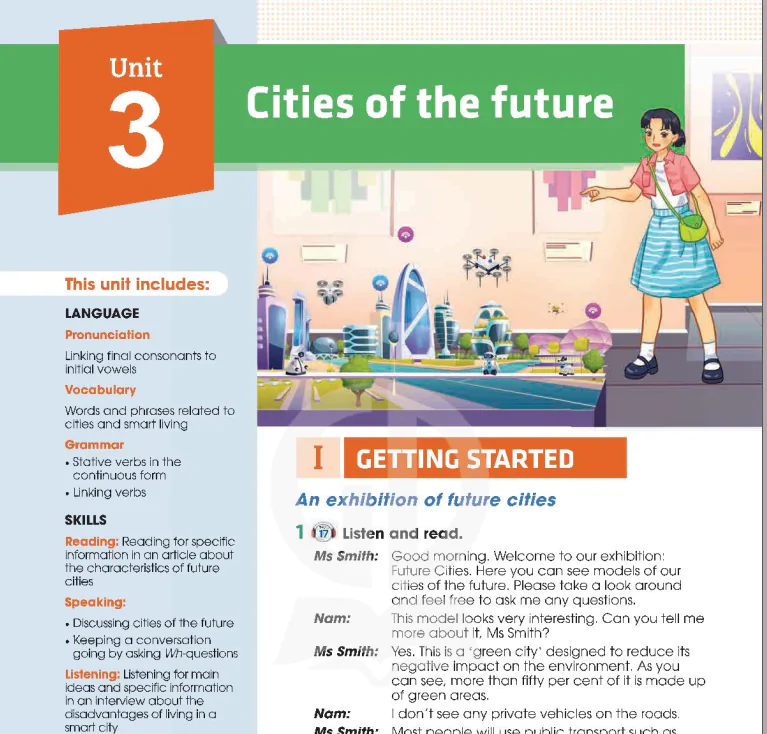
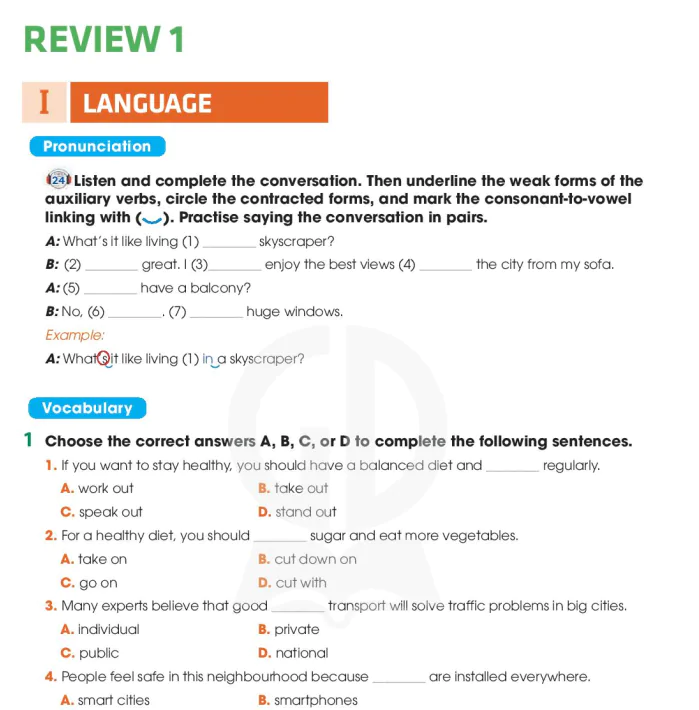

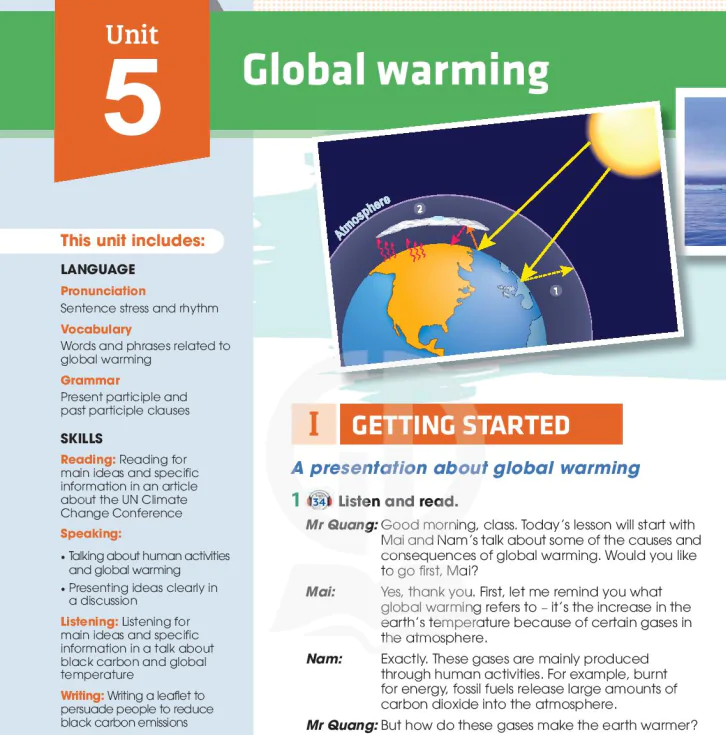
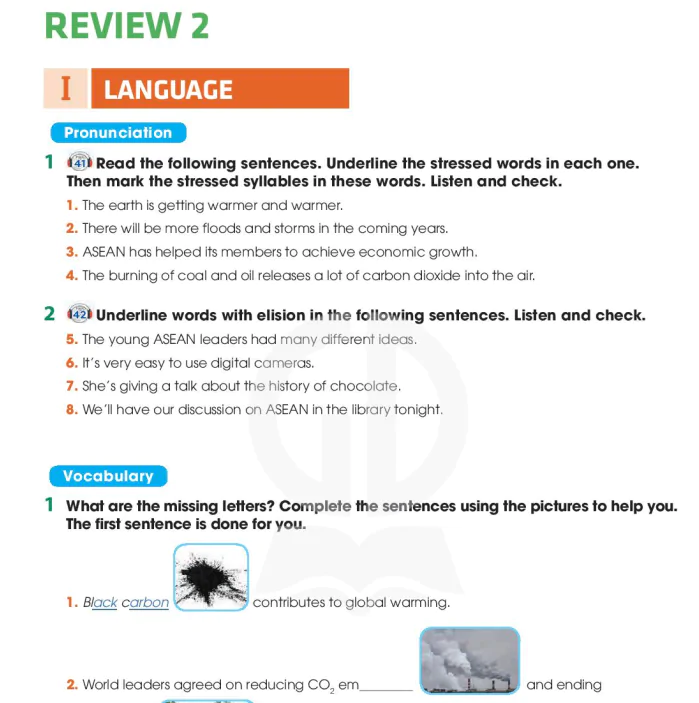
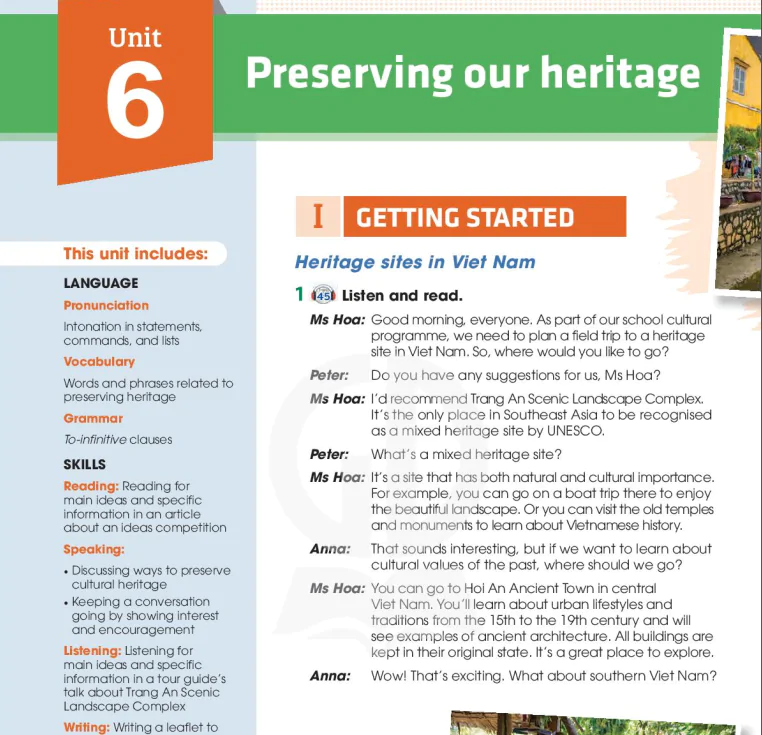

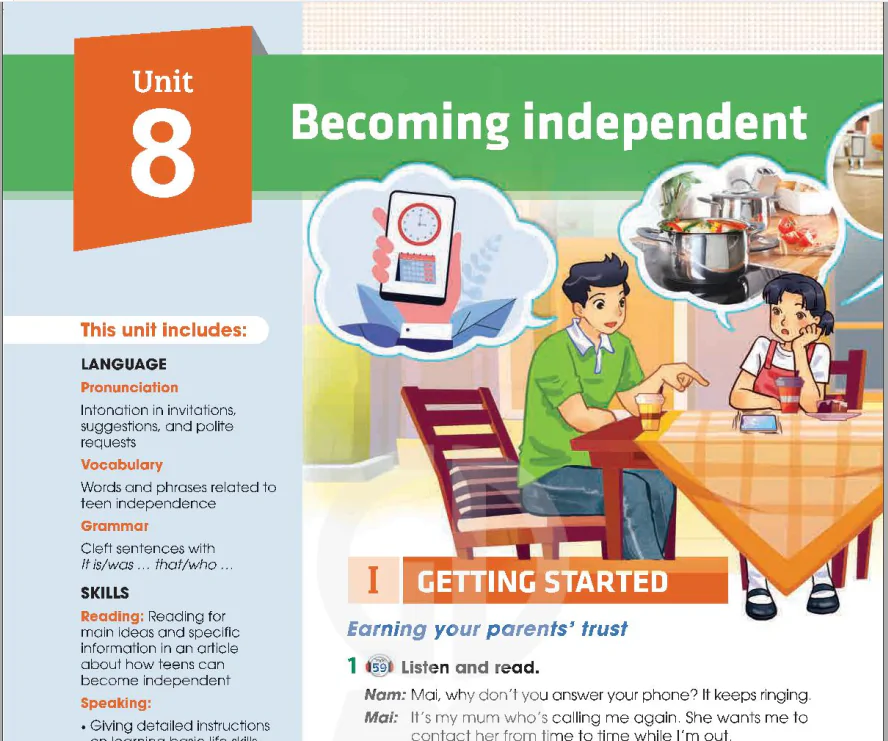
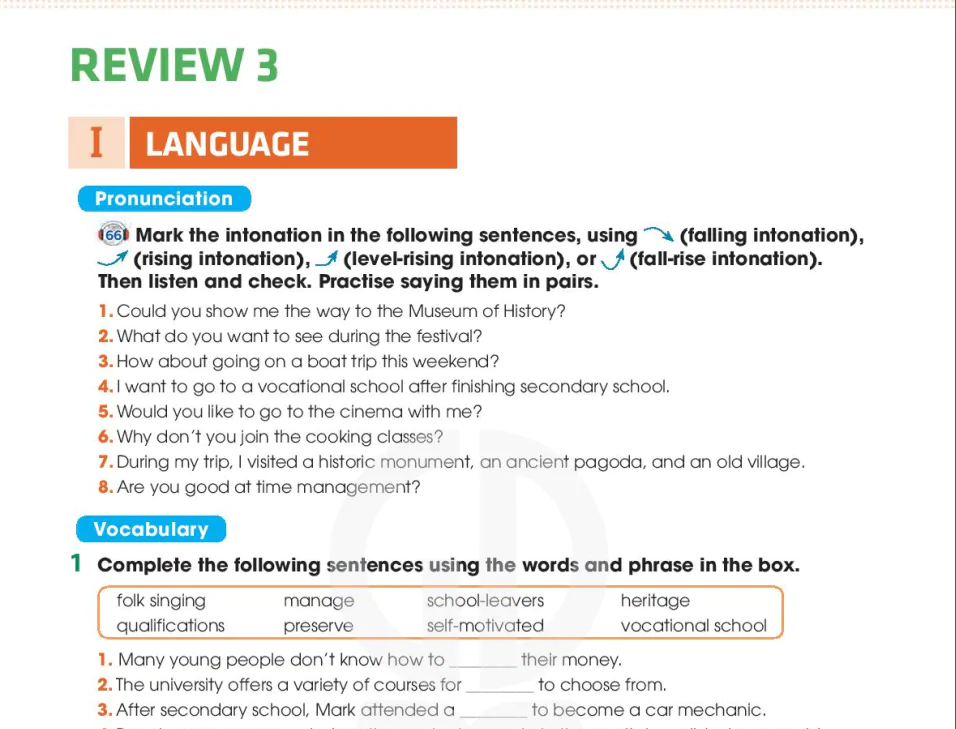
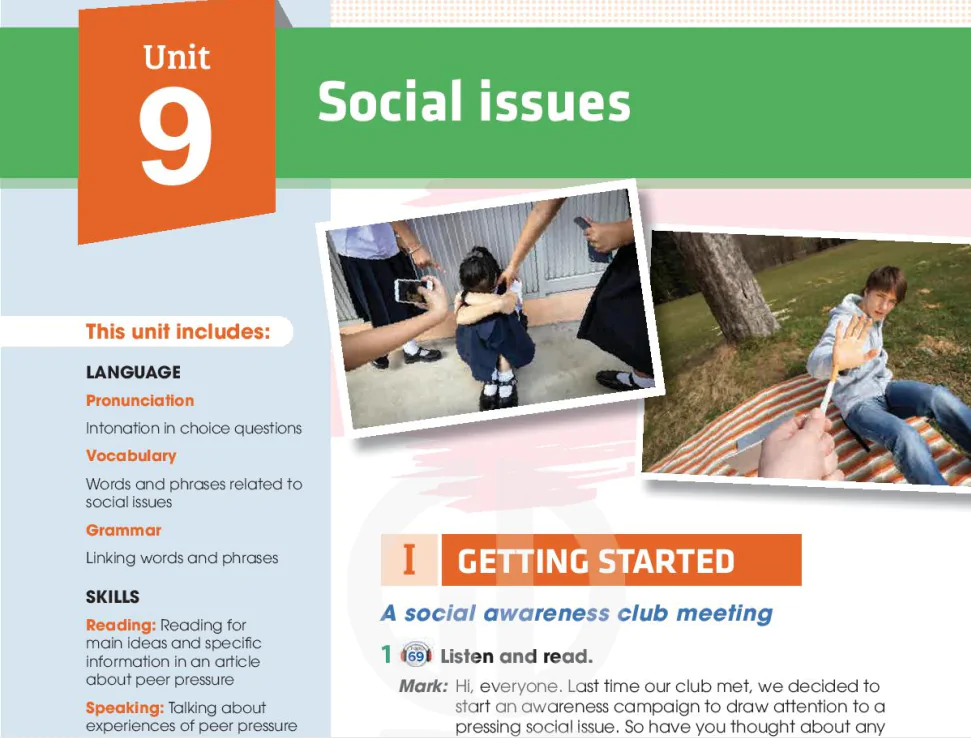
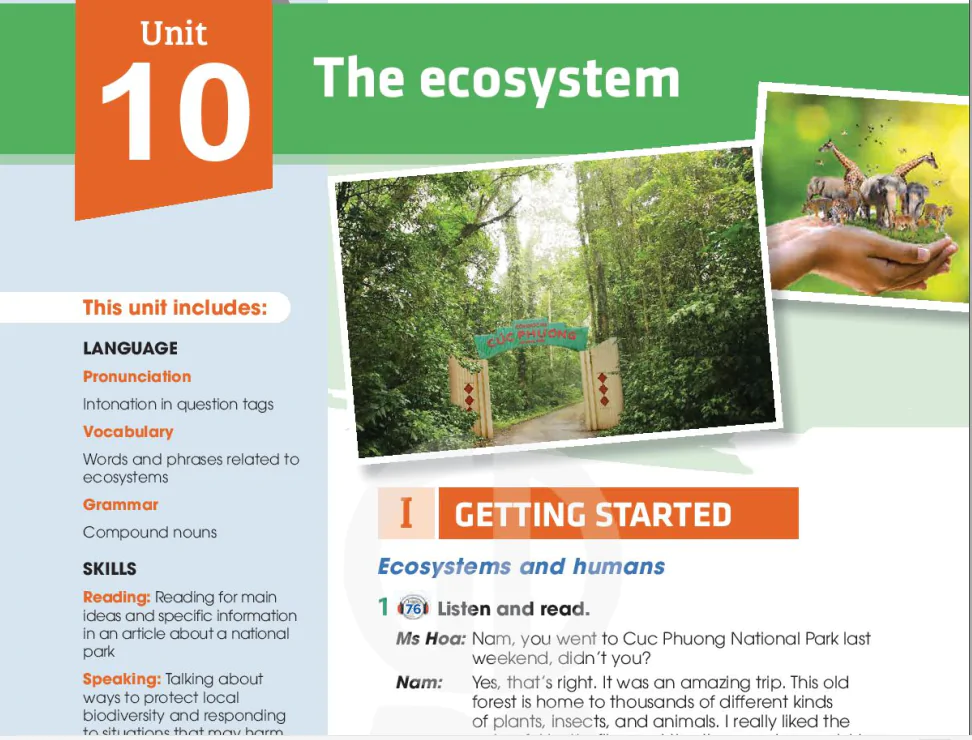
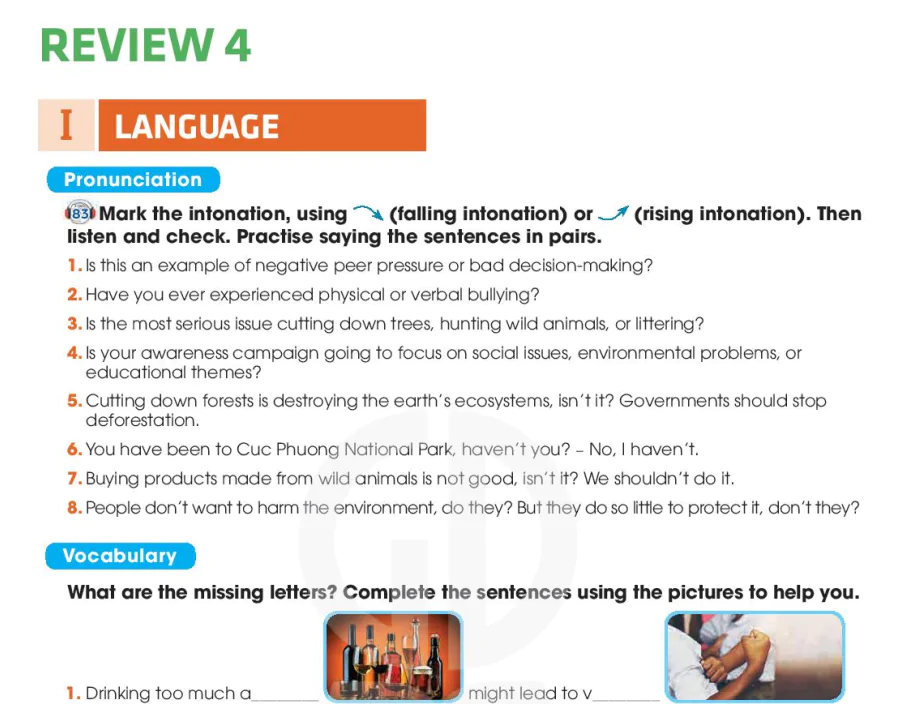
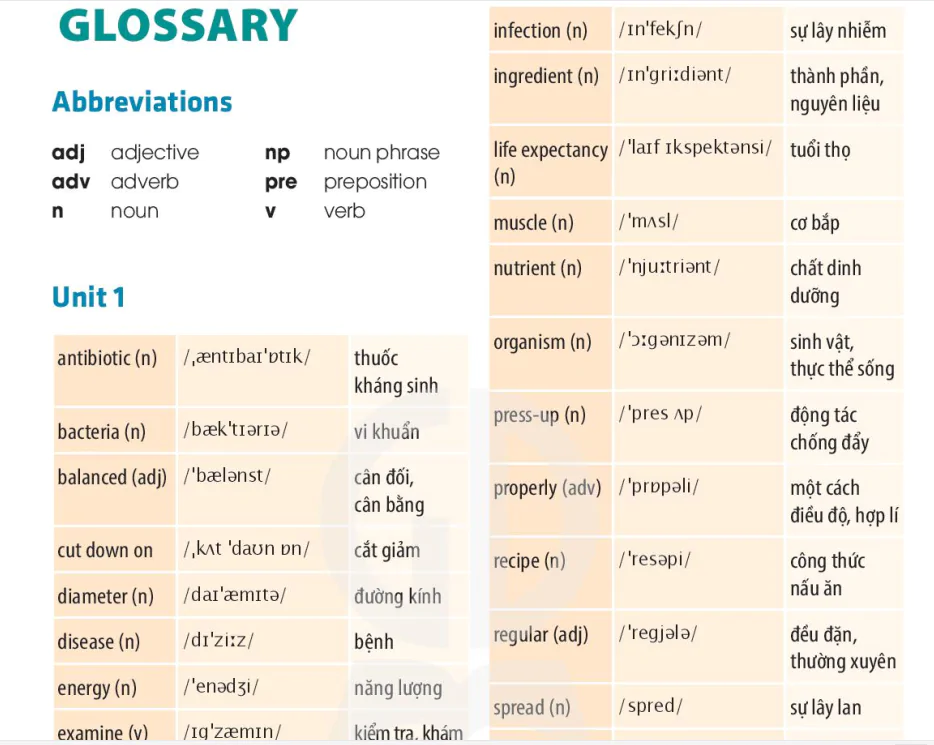
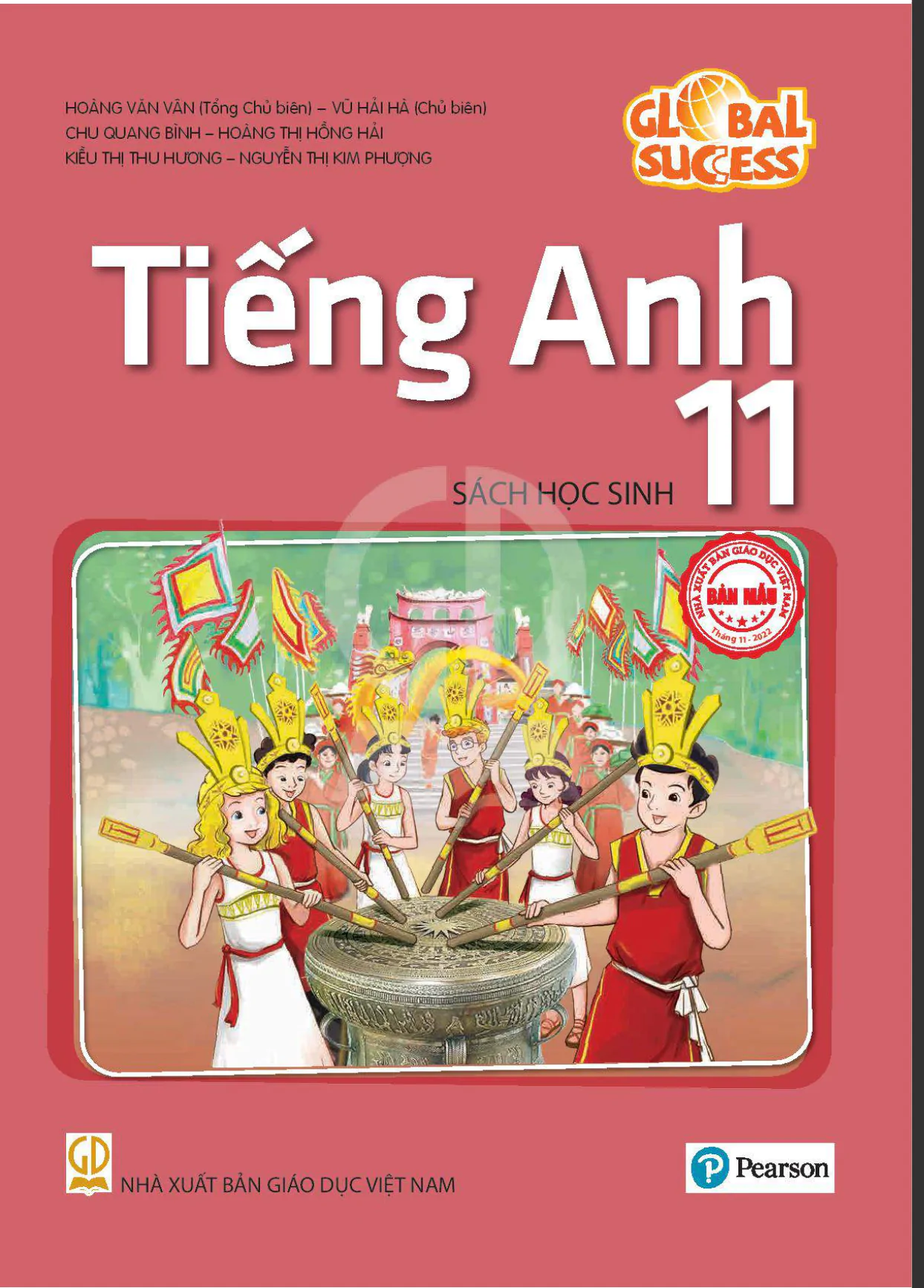

















Bình Luận
Để Lại Bình Luận Của Bạn